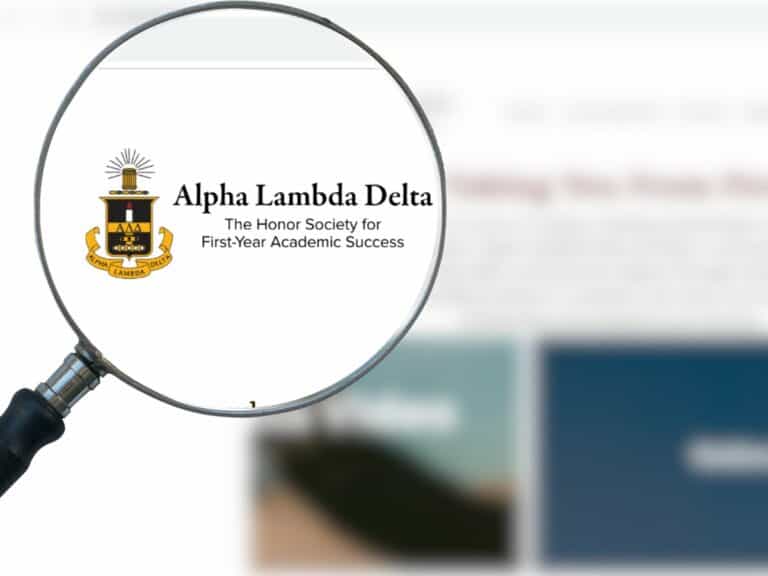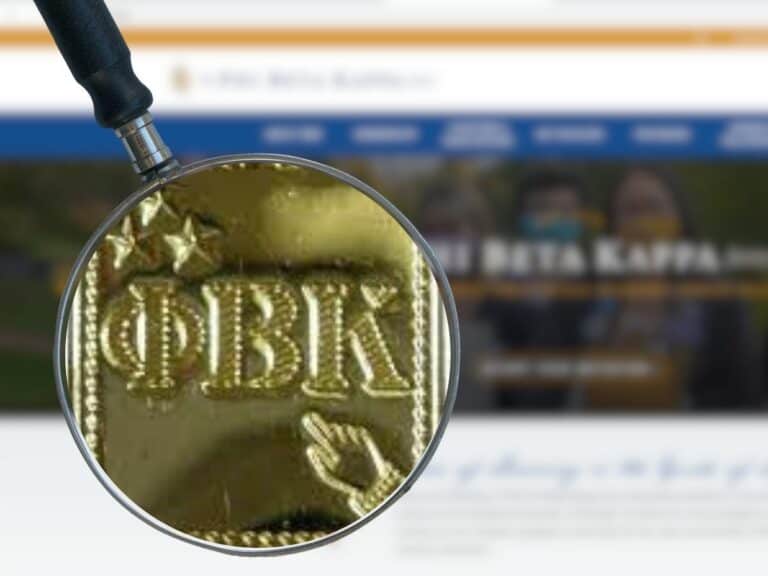NSHSS Review and Questions Answered
So, you just got an invitation to join the National Society of High School Scholars (NSHSS). Its name sounds just like NHS, which is a prestigious honor society many high schoolers dream about getting invited into.
NSHSS is a legitimate honor society. It claims to have over 7.5 million members from more than 170 countries and has resources for college-bound students. The issue with NSHSS, based on general consensus, is that it’s not that exclusive and offers relatively little return to member students.
On the fence as to whether or not you should join NSHSS? Don’t stop reading now.
Below, we will talk about pretty much everything that graduating high school students, whether invited to hop on board or just downright curious, need to know about NSHSS.
By the time you are through reading the last sentence of this article, you will have a much better idea of this honor society that many students and parents mistake as a scam.
Read Also: Is NSHSS Worth It?
Why Was NSHSS Established?
NSHSS was formed by James Lewis and Claes Nobel, who is the great-nephew of Alfred Nobel, the founder of the prestigious Nobel Prizes, in order to be able to continue the mission of the Nobel Prize to support academic achievement and world betterment. NSHSS came into being in 2002.
Having an idea of the people behind NSHSS is more than enough to let you realize that, despite what many people believe, the organization is a legitimate honor society after all.
One of the co-founders, James Lewis, for instance, founded the Golden Key International Honour Society in 1977 when he was an undergraduate student at Georgia State University. Meanwhile, the other co-founder, Claes Nobel, who is originally from Sweden and now holds dual citizenship from Sweden and the US, has a recognized family name.
NSHSS’ board of advisors is impressive, too. As of this writing, it consists of:
- Nobel laureates
- Company presidents, chairs and directors
- A vice-chancellor emeritus
- An actor, producer and director
How is NSHSS Different From NHS?
The main difference between NSHSS and NHS is that the former is an individual membership. So, in other words, member students are not chartered through schools. Meanwhile, the National Honor Society (NHS) has chapters at various schools through which eligible students are considered for membership.
Both NSHSS and NHS are honor societies. Needless to say, these organizations share pretty much the same goals and objectives. However, there are also many things that set them apart.
For instance, NHS is a much older honor society — it was founded way back in 1921.
When it comes to being a member, the difference between NSHSS and NHS is $90. That’s because students have to shell out that amount of money in order to be able to join the group after receiving an invitation. However, the cost covers membership for a lifetime. On the other hand, students do not have to pay any fee to become an NHS member.
Eligibility-wise, NSHSS and NHS have different criteria. Just check out this table of requirements to see which types of students are commonly invited to join which honor society:
NSHSS
- GPA of at least 3.5
- PSAT score of at least 1150
- SAT score of at least 1280
- ACT score of at least 26
- AP exam score of 4
- Combined IB test score of 36
- Being in the top 10% of the class
NHS
- GPA of at least 3.0 (depending on the NHS chapter’s requirement)
- Absence of discipline/behavior concerns in and out of school
- Completion of 80 service hours (with documentation)
One more thing that sets NSHSS and NHS apart from one another is that NSHSS members are said to enjoy the associated benefits in high school, college and beyond due to the fact that the organization is an individual membership.
This means that membership status remains even if the student transfers to a different school.
As mentioned earlier, NSHSS has more than 1.7 million member students from across the globe. On the other hand, NHS has over 1 million member students from the US, Canada, Puerto Rico and other US territories.
Does NSHSS Offer Scholarships?
One of the objectives of NSHSS is to provide member students with increased access to scholarships. According to the honor society itself, members can apply for scholarships related to various academic fields. NSHSS and its partners are said to generate over $2 million in scholarship funding a year.
Being a member of an honor society can help increase a student’s chances of getting admitted into a competitive school. At the same time, it can help decrease the overall cost of earning a college degree.
This is especially true for honor societies providing its members scholarship options, such as NSHSS.
It’s true that, as the organization itself claims, one of the perks students can enjoy for being members of NSHSS is the opportunity to apply to an assortment of scholarships related to STEM, literature, medicine, visual arts and other academic fields.
However, not too many students and parents, too, are happy with the figures.
For instance, back during the academic year 2012 to 2013, only ten Claes Nobel awards of $5,000 were provided. On the other hand, it seemed like only three NSHSS Ambassador Awards were handed out in the same academic year.
It’s because of the few scholarships and low awards handed out by NSHSS to member students why many are unhappy with the organization, some of whom even consider it as a scam. Meanwhile, NHS and other honor societies grant scholarships at no cost since becoming a member is free of charge.
How Do You Tell If an Honor Society is Legit?
The majority of legitimate honor societies have deep roots, usually with a long history and lineage. They tend to have many members, too, from various chapters or parts of the planet. In most instances, one may check if the organization is certified by the Association of Collegiate Honor Societies.
Before agreeing to become a member of an honor society that has just invited you to join, you should do your homework first. Otherwise, you could wind up wasting time and money, particularly if a fee is required.
Not all honor societies out there are legitimate organizations.
This is when the importance of doing a background check beforehand comes in. Being a member of an honor society can make your application more appealing in the eyes of college admissions officers. However, only if it’s legit — being a member of a bogus honor society means absolutely nothing in the admissions process.
It’s a good thing that determining whether or not an honor society is legit isn’t that difficult. Make sure that you bear in mind the following before you make a decision:
- The Association of Collegiate Honor Societies recognizes most honor societies.
- Usually, prestigious honor societies send out invitations at the end of junior or senior year.
- Legit honor societies tend to be in existence for a very long time.
- If the honor society is for-profit rather than non-profit, that’s a red flag.
Just Before You Join NSHSS
There is no denying that NSHSS is a legitimate honor society. This means that there are perks to enjoy for being a member. However, what some students and parents don’t like about it is the fact that, unlike NHS and other prestigious organizations, being an NSHSS member isn’t cost-free and does not come with enough return.
On the other hand, you can apply for scholarships from colleges and third-party providers at no cost.
Related Questions
Can you join more than one honor society?
Some high school students may be invited to join many different honor societies. The good news is that they don’t have to pick just one honor society to join. However, one has to keep in mind that fees may vary, and joining multiple honor societies can cause the associated costs to add up.
Who can you approach to ask if an honor society is legit?
A high school counselor or a member of the faculty is someone who can help a student figure out whether or not an honor society is legitimate. A college academic advisor may be approached, too. The Association of Collegiate Honor Societies, in many instances, can lend a hand.
Disclaimer: The views and opinions expressed in this article are those of the authors and do not necessarily represent those of the College Reality Check.





